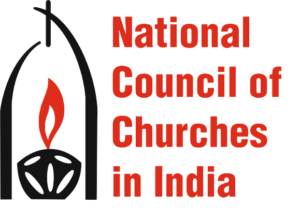Shibu Soren: an epitome of political engagement for social change
Shibu Soren, widely known as “Dishom Guru” (meaning “Guru of the land”), was a towering figure in Indian politics, particularly revered by the Adivasi communities of Jharkhand. His life’s work was dedicated to championing the rights and welfare of tribal people, making him a significant role model and leader for the community.
Shibu Soren’s activism was born from personal tragedy and a deep-seated desire to fight injustice. After his father was allegedly killed by moneylenders, he dedicated his life to battling the exploitation of tribal communities. He launched the “Dhankatni Andolan” in the 1960s, a grassroots movement where he mobilized tribals to reclaim their land from moneylenders and landlords. This movement earned him the respect and title of “Dishom Guru” from the Santhal community. Soren was a pivotal figure in the long and arduous struggle for a separate state for the tribal population of the Chotanagpur and Santhal Parganas regions. In 1973, he co-founded the Jharkhand Mukti Morcha (JMM) with A.K. Roy and Binod Bihari Mahato.
The JMM became the leading political voice for the demand for statehood, and after decades of agitation, Jharkhand was finally carved out of Bihar on November 15, 2000. Soren’s leadership was instrumental in this achievement, fulfilling a long-cherished dream for the region’s tribals.
Throughout his political career, which included multiple terms as a Member of Parliament and a three-time Chief Minister of Jharkhand, Shibu Soren consistently raised his voice for the rights of tribal communities, the poor, and other marginalized sections of society. His political journey, though marked by some controversy, was largely seen as a testament to his unwavering commitment to his people. He was seen not just as a politician but as a symbol of dignity and resistance for many rural tribal families. Shibu Soren’s life is a story of turning a fight against oppression into a political struggle for self-determination. He inspired Adivasis to not only resist exploitation but also to embrace education and abandon social ills. For many, his legacy is one of hope and empowerment, demonstrating that political power can be rooted in community and used to protect the rights of the underprivileged.
Soren’s role in relation to tribal Christians and Churches is highlighted by his support for their activities and his view on religious harmony.
During his time as Chief Minister of Jharkhand, Soren was said to be welcoming of the Church’s initiatives to serve the poor in remote areas. He acknowledged the Church’s role in the development of the region, specifically in bringing education and healthcare to tribal people. The Christian community in Jharkhand reportedly prayed for him during his illness and mourned his death, highlighting his contributions to the statehood movement. A prelate also noted that Soren treated everyone equally, regardless of religion, and fought against divisive forces to protect minorities.
Mr. Pradip Bansrior
Executive Secretary, Comission on Tribal/Adivasi

